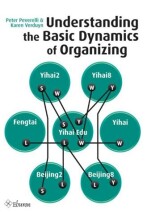Articles MSI - Bansal: Why companies go green: a model of ecological responsiveness
14 important questions on Articles MSI - Bansal: Why companies go green: a model of ecological responsiveness
Bansal researched which 3 motives and 3 contextual factors induce corporate ecological responsiveness. Describe these.
Several studies have identified motives for corporate 'greening'. But these studies prediction of ecological responsiveness is limited. Also, it lacks clarity as to how motivations differ and what contexts lead to particular motivations. According to Bansal this leads to a significant research opportunity, which one?
What is the purpose of the study of Bansal?
- Higher grades + faster learning
- Never study anything twice
- 100% sure, 100% understanding
How is corporate ecological responsiveness defined in Bansals study?
Prior research on organizations and the natural environment has identified these 4 drivers of corporate ecological response: legislation, stakeholder pressure, economic opportunities, and ethical motives. Why does Bansal further explore this subject?
What is the purpose of the research of Bansal?
The data analysis of Bansal suggested three basic motivations for ecological responsiveness. Which three and explain the first:
The data analysis of Bansal suggested three basic motivations for ecological responsiveness. Which three and explain the second:
The data analysis of Bansal suggested three basic motivations for ecological responsiveness. Which three and explain the third:
Describe the first contextual dimensions that influence the motivation of firms according to Bansal?
Bansals propistion regarding issue salience is: issue salience will be positively associated with legitimation and competitiveness. Why?
Describe the second contextual dimensions that influence the motivation of firms according to Bansal?
Describe the third contextual dimensions that influence the motivation of firms according to Bansal?
Bansals proposition regarding individual concern is: Individual concern will be positively associated with ecological responsibility and legitimation. Why?
The question on the page originate from the summary of the following study material:
- A unique study and practice tool
- Never study anything twice again
- Get the grades you hope for
- 100% sure, 100% understanding






























